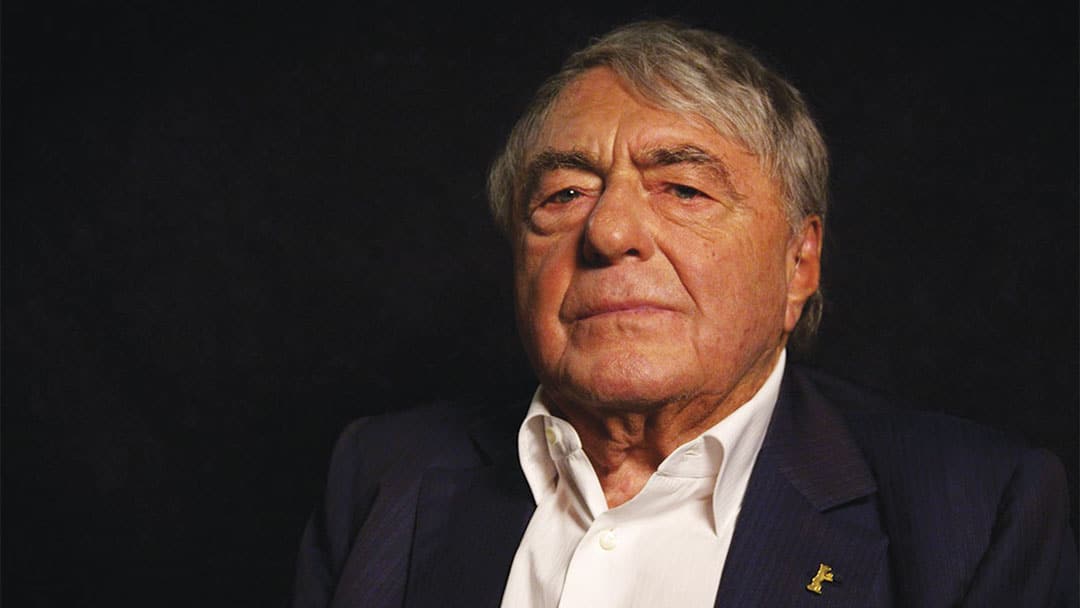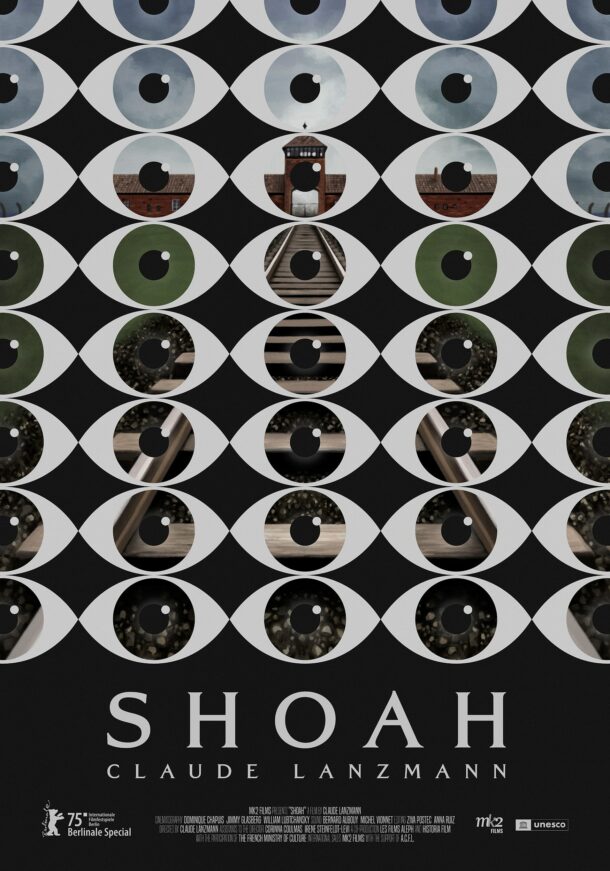
Claude Lanzmann, who was born in Paris in 1925, died in 2018 in the city of his birth, aged 92. He will always be remembered for the ground-breaking undertaking of Shoah, which took twelve years (1974-1985) to finish; the reconstruction of the genocide, lasting 560 minutes, a unique, monumental achievement that made cinematic history with its telling of the ‘unspeakable’ extermination of the Jews by the Nazis.
Born as the grandson of Russian Jews who fled the pogroms, his upbringing was marred by the unhappy marriage of his parents: when Claude was nine, his mother Paulette left the family, which, ironically, came as a relief to her son: “I feared the marriage of my parents would end in suicide, or even murder”. His father, politically aware, taught his children survival techniques, which came in handy during the Nazi occupation of France. In 1943 Claude was sent to boarding school in Clermont-Ferrand, where he joined the Jeunesses Communistes and the resistance. In his autobiography Le Lievre de Patagonie (2009), he is critical of himself for not having stood up enough for persecuted fellow students.

After the war he went to Tubingen in Germany where he met Nazi officers for the first time at the estate of the Von Neurath family, where he discovered a mini-concentration camp on the grounds. He went afterwards to teach in Berlin at the newly founded Free University. Lanzmann was unhappy about the lame De-Nazification process and he asked for Jean-Paul Sartre’s Reflexions sur la Question Juive to be read by his students. This led to him joining Sartre and De Beauvoir at the Paris offices of Les Temps Modernes later – whose editor he was since 2016. Between 1952 and 1957 he lived with Simone de Beauvoir “I am the only man with whom Simone lived a quasi-marital existence.” Claude’s younger sister Evelyne, an actress, had a passionate relationship with Sartre, Lanzmann and de Beauvoir trying to keep matters secret. But after Evelyne’s suicide at the age of forty in 1967, the papers were full of accusations of Lanzmann “having pimped out his sister to Sartre”. Whilst this might be a little harsh, the fact remains that Sartre was 22 years older than Evelyne, who took their break-up very hard – no wonder after the trauma of her childhood. In 1952 Lanzmann went for the first time to Israel where he would start his career as a filmmaker in 1973 with Pourquoi Israel? Whilst taking a progressive stand on the Algerian question, signing the Manifesto of the 121 to end the war, Lanzmann always legitimised Israel’s right to keep the occupied territories. His documentary Tshal (1994) is full of praise for the Israeli Defence Forces, even though he admitted that the Palestinians should have their own country – later.
But the Holocaust dominated his output: of his nine features, five dealt with the subject: most interesting Sobibor October 1943, 4 pm, about the successful uprising in the death camp of the title. Then there is A Visitor from the Living (1999), in which Lanzmann interviews the Swiss Red Cross attache Maurice Rossell, who, after visiting the death camp of Theresienstadt late in the war, wrote a favourable report, praising the Nazis for their ‘generosity’. Lanzmann’s last feature, Four Sisters, dealing again with Holocaust survivors, was premiered the day before his death. He was adamant, that Shoah was not a documentary: “The word makes me want to take a pistol and shoot”. AS
SHOAH in Special Tribute at the 75th Berlinale to mark the 80th Anniversary year of the end of the Second World War and the liberation of Auschwitz-Birkenau | Berlinale 13-24 FEBRUARY 2025